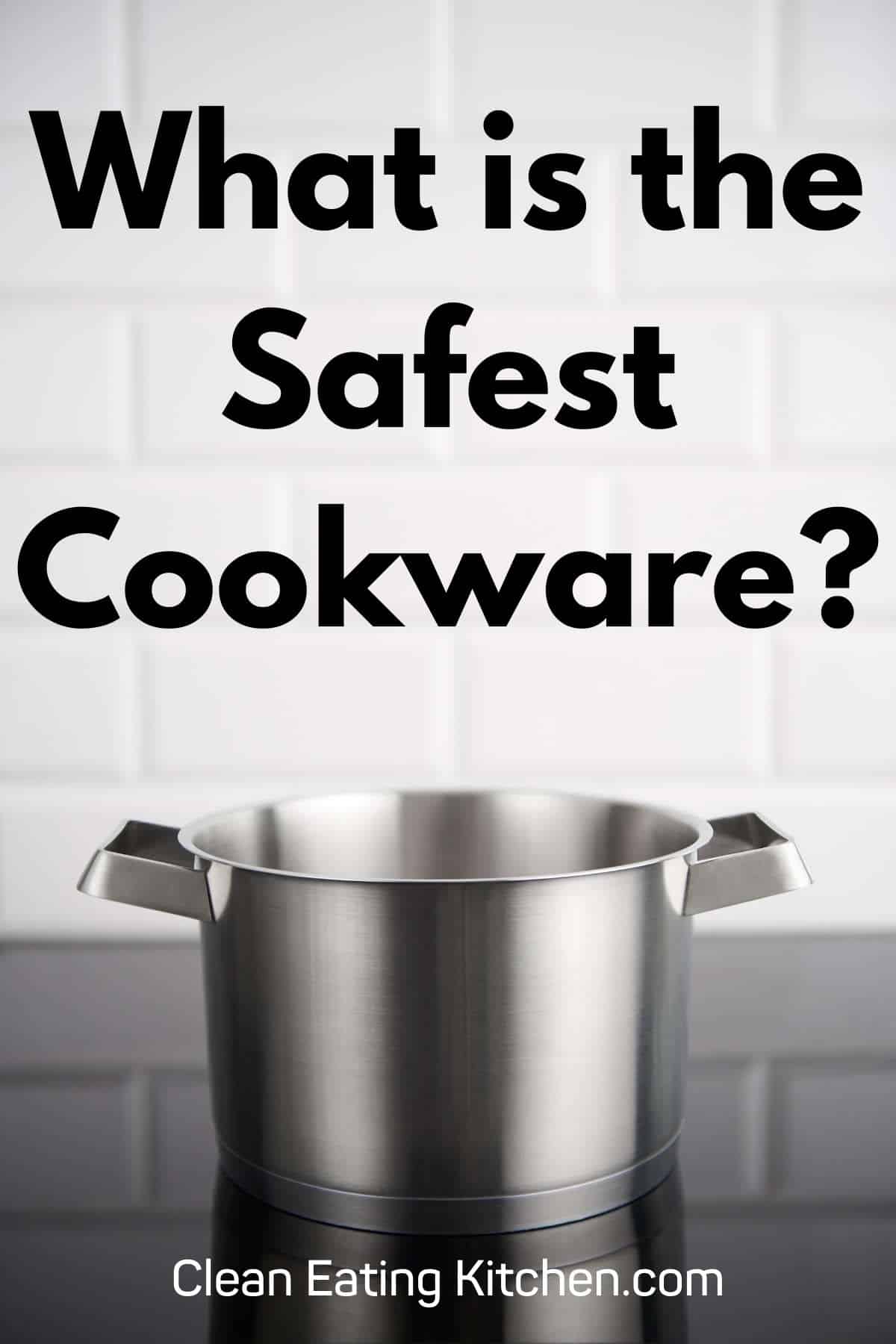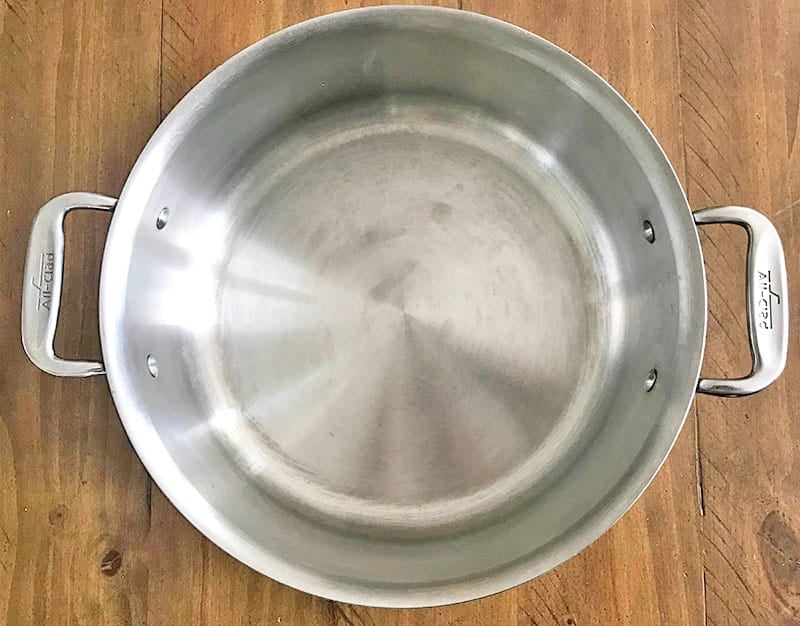Stainless steel is a popular choice for cookware because it is durable, doesn’t rust and is easy to clean. But there are some concerns about using stainless steel because it can leach metals into food. This is most likely to happen with acidic foods or when cooking at high temperatures.
Some studies have found that stainless steel can leach small amounts of chromium and nickel into food. These metals are not considered harmful in low levels, but they can be a concern for people with nickel allergies or those who want to avoid exposure to metals. If you are concerned about metal leaching, you can use glass or ceramic cookware instead of stainless steel.
Stainless Steel or Cast Iron: Which Cookware Is Best? Is Teflon Safe?
There is a lot of debate surrounding the safety of stainless steel cookware. Some people believe that it is perfectly safe to use, while others claim that it can leach harmful chemicals into food. So, what’s the truth?
As with any material, there are both pros and cons to using stainless steel cookware. On the plus side, stainless steel is non-reactive, so it won’t leach chemicals into your food. It’s also very durable and easy to clean.
However, some people argue that stainless steel can be a source of nickel and chromium exposure.
So, is stainless steel cookware safe? The answer may depend on your individual sensitivities and preferences.
If you’re concerned about nickel or chromium exposure, you may want to choose another type of cookware. Otherwise, stainless steel is an excellent option that will last for years to come.
Is Stainless Steel Toxic to Humans
Stainless steel is an alloy of iron, chromium and other metals. It is highly resistant to corrosion and staining, making it a popular choice for cookware, appliances and medical equipment. However, some people worry that stainless steel may be toxic to humans.
There is no evidence that stainless steel is harmful to human health. In fact, it is often used in food preparation and medical settings because it is so safe. Some people may be allergic to the nickel or other metals in stainless steel, but this is rare.
If you have any concerns about your health, please consult with a doctor or healthcare professional.
What is the Safest Cookware
When it comes to cookware, safety is always a top concern. There are many different types of materials that can be used to make cookware, and each has its own set of pros and cons. Some materials may be more durable or heat-resistant than others, but they may also come with a higher risk of leaching toxins into food.
With so many factors to consider, it can be hard to know which type of cookware is the safest option.
In general, stainless steel and ceramic cookware are considered to be the safest options. These materials are non-reactive, so they won’t leach any toxins into your food.
They’re also very durable and easy to clean, making them low-maintenance options for busy cooks. If you’re looking for something a little more budget-friendly, aluminum cookware is a good option. It’s not as durable as stainless steel or ceramic, but it’s still unlikely to leach toxins into your food.
No matter what type of cookware you choose, it’s important to use it safely. Always follow the manufacturer’s instructions when using new cookware, and never use anything that looks damaged or worn out.
Best Stainless Steel Cookware
If you are in the market for some new cookware, you may be wondering if stainless steel is the way to go. There are many benefits of stainless steel cookware, but there are also a few drawbacks that you should be aware of before making your decision.
Benefits of Stainless Steel Cookware
1. Even Heat Distribution
One of the biggest advantages of stainless steel cookware is that it distributes heat evenly across the bottom and sides of the pan. This means that your food will cook evenly, without any hot spots.
2. Durability
Another big advantage of stainless steel is its durability. It is a very tough material that can withstand a lot of wear and tear.
With proper care, your stainless steel pans will last for many years.
Is 18/10 Stainless Steel Safe for Cooking
18/10 stainless steel is a type of stainless steel that contains 18% chromium and 10% nickel. It is also known as 304 stainless steel because it has the same composition as the 304 alloy. Stainless steel is a metal that does not corrode or rust easily, making it a popular choice for cookware and other kitchen items.
However, some people are concerned about whether 18/10 stainless steel is safe for cooking.
The answer to this question depends on what you are going to use the 18/10 stainless steel for. If you are using it for pots and pans, then there is no need to worry as the material is perfectly safe for cooking.
In fact, 18/10 stainless steel is one of the best materials you can use for cookware as it is non-reactive and durable. However, if you are planning to use 18/10 stainless steel for food storage containers, then you should know that the material is not necessarily food grade safe. This means that there could be trace amounts of nickel or chromium leaching into your food if stored in these containers over time.
If you are concerned about this, then you can either look for food storage containers made from another material such as glass or plastic, or make sure to wash your 18/10 stainless steel containers well before using them to store food.
Nickel Free Stainless Steel Cookware
When you’re outfitting your kitchen, one of the first decisions you need to make is what type of cookware to buy. There are a variety of options on the market, but if you’re looking for a material that is durable, easy to clean, and won’t react with your food, then nickel free stainless steel cookware is a great choice.
Nickel free stainless steel cookware is made without the addition of nickel, which can be found in some grades of stainless steel.
Nickel can cause problems for people with nickel allergies, and it can also leach into food and potentially cause health problems. Nickel free stainless steel cookware is a safer option for both cooking and storing food.
There are a few things to keep in mind when shopping for nickel free stainless steel cookware.
First, check the labels carefully to make sure that the product is truly nickel free. Second, be aware that some brands may use slightly different terminology, such as “low-nickel” or “no added nickel” – so again, read the label carefully before making your purchase.
Finally, remember that even though nickel free stainless steel cookware doesn’t contain this metal, it can still come into contact with other materials during manufacturing or cooking that do contain nickel.
For this reason, it’s important to wash all new pots and pans thoroughly before using them for the first time. This will help remove any traces of contaminants that could cause an allergic reaction or leach into your food.

Credit: www.cleaneatingkitchen.com
Are Stainless Steel Pans Toxic Free?
There are a lot of misconceptions out there about stainless steel pans and whether or not they are toxic free. The truth is, all stainless steel pans are made with a nickel alloy and therefore can leach small amounts of nickel into food. However, this is only a concern for people who have nickel allergies or are sensitive to nickel.
For most people, stainless steel pans are perfectly safe to use and pose no health risks whatsoever. So if you’re looking for a cookware option that is both nontoxic and durable, stainless steel is definitely the way to go!
When Should You Not Use Stainless Steel Cookware?
There are a few things to keep in mind when deciding whether or not to use stainless steel cookware. First, stainless steel can be a poor conductor of heat, so it’s important to make sure that the pan is properly heated before adding food. Additionally, stainless steel can be scratched more easily than other materials, so it’s important to use caution when cooking with it.
Finally, some foods can cause staining on stainless steel pans, so it’s important to consider what you’ll be cooking before using them.
What are the Disadvantages of Cooking With Stainless Steel?
There are a few disadvantages to cooking with stainless steel. First, it is a more expensive option than other materials like aluminum or non-stick surfaces. Second, it is not as good at conducting heat as some other materials, so your food may not cook evenly if you’re not careful.
Finally, it can be difficult to clean if food gets burnt on or stuck to the surface.
What Type of Cookware is Safest?
When it comes to cookware, there are a few different things to consider in terms of safety. First, you want to make sure that the materials you’re using are food-safe and won’t leach any harmful chemicals into your food. Second, you want to choose cookware that is durable and won’t easily break or chip, which could lead to injuries.
And finally, you want to think about how easy the cookware is to clean – since bacteria can easily build up on dirty surfaces.
With all of that in mind, here are a few different types of cookware that are considered safe for cooking:
Stainless steel: This is a popular choice for cookware because it’s non-reactive (so it won’t leach any chemicals into your food), durable, and easy to clean.
Just be sure to look for quality stainless steel that isn’t too thin – otherwise it might warp or dent easily.
Cast iron: Another great option for cookware, cast iron is also non-reactive and very durable. It does require a bit more care than stainless steel (you need to season it regularly), but many people love cooking with cast iron because it gives food a nice flavor/smell when used correctly.
Ceramic: Ceramic cookware is another safe choice as long as the glaze is intact and not chipped or cracked (which could cause lead poisoning). It’s also important to check that the ceramic piece was fired at a high enough temperature – otherwise it might not be properly sealed and could leach chemicals into your food.
Conclusion
If you’re wondering if stainless steel cookware is safe, the answer is yes! Stainless steel is one of the most popular materials for cookware because it’s durable and doesn’t react with food. However, there are a few things to keep in mind when using stainless steel cookware.
First, always use cooking utensils made of silicone or wood when cooking with stainless steel pots and pans. These materials won’t scratch the surface of your cookware and will help prevent sticking. Second, avoid using harsh cleaners on your stainless steel cookware.
Stick to gentle soaps and avoid using abrasive scrubbers. With proper care, your stainless steel cookware will last for years to come!


